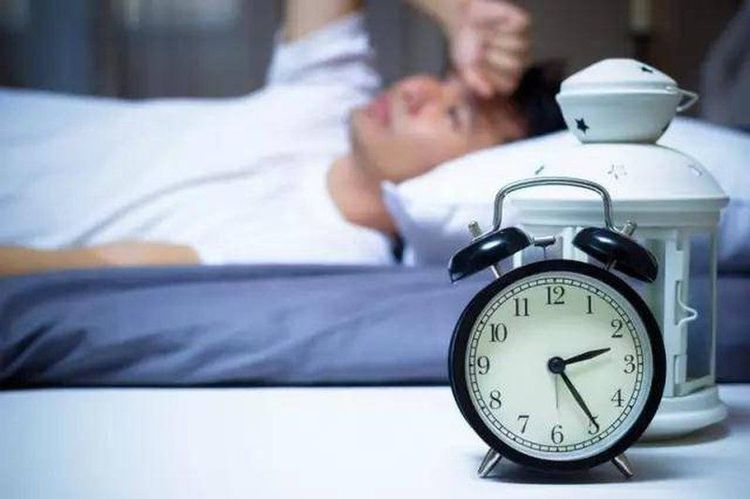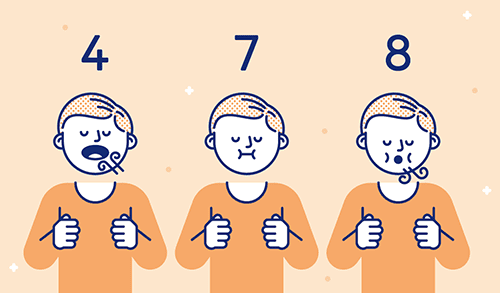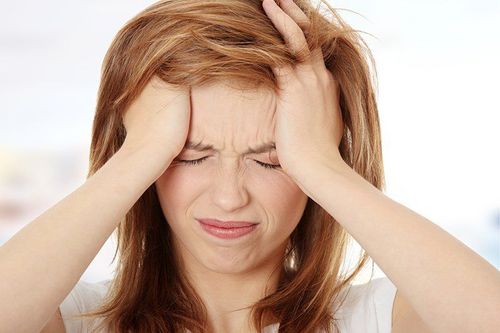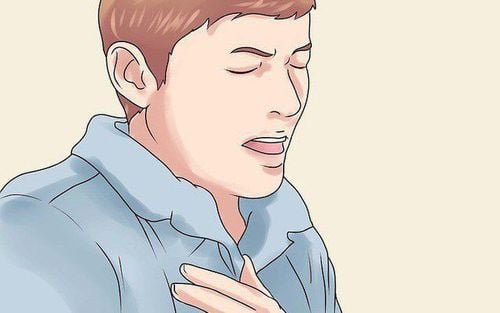This is an automatically translated article.
Many of us have gone through a period of staying up until 3 am, unable to fall back asleep. Your mind races with a sense of panic about a difficult day ahead if you wake up unable to fall back asleep. Many potential health problems such as chronic pain, sleep apnea. But if your trouble falling asleep isn't due to a medical problem, here are some tips that can help you get back to sleep quickly.
Waking up in the middle of the night is a common and annoying problem that affects everyone at some point in their life. The most common form of insomnia accounts for about 10 - 60% of being unable to maintain deep sleep, repeatedly waking at night, and waking up unable to fall back to sleep. This condition goes on for a long time and becomes a full-blown sleep disorder.
Causes of disruption of the body's sleep due to internal or external factors. But whatever the reason, lying awake at night will leave you exhausted the next day.
1. 10 tips to help you fall back to sleep after waking up
1.1. Eliminate bright lights or loud sounds
If you have trouble getting back to sleep, look for any lights in your bedroom that might be bothering you. LED lights from electronic devices and light shining through your windows can make it harder to fall back asleep.
If an unpleasant sound from outside comes through your window, try closing the window to block the sound. Using earplugs, turning on a fan, or listening to white noise can also help drown out annoying sounds.
1.2. Get out of bed and move but don't go to the bathroom unless you need to.
Many sleep experts recommend getting out of bed and going to another room if you can't fall back asleep within 20 minutes.
Moving to another room and doing something relaxing to distract your mind for a few minutes can make it easier to fall asleep when you return.
Another problem that wakes you up at night is the need to go to the bathroom, but it is recommended that you stay in bed unless you absolutely need to go to the bathroom. When you are sleeping, your heart rate slows down and is very relaxed. It will stay that way, even when you're awake, but when you sit up and then get out of bed, your heart rate will go faster and your autonomic nervous system will be more active, which NOT conducive to sleep.
1.3. Avoid staring at the clock
Staring at the clock can make you feel anxious, especially if you already have an anxiety disorder.
Research from 2019 found that the link between anxiety and sleep is very strong. People who regularly worry about going to bed will also worry about waking up in the middle of the night. Worrying about your not getting enough sleep will keep you from falling asleep. Try to focus on relaxing your mind.

Nhìn chằm chằm vào đồng hồ khiến bạn cảm thấy lo lắng không ngủ được
1.4. Keep phones and other screens away from you
Screens from smartphones and other electronic devices emit blue light that can suppress your body's production of melatonin. Melatonin is a hormone made by the pineal gland in the brain that helps regulate your circadian rhythm and sleep cycle.
In addition, your phone is also a potential source of stress. You may accidentally read a disturbing headline or may see a text about a difficult situation at work. When you're stressed, it's harder to fall back asleep. Or are you simply so caught up in a video, a game or a story that you forget that you need to sleep in the moment.
However, it is inevitable that you may have to use your phone or any other device with blue light, remember to switch them to soft mode to help protect your eyes.
1.5. Lie down or try breathing exercises
Doing breathing exercises or meditation can help calm your mind and help you fall asleep. These techniques can also distract you from sleep anxiety.
One exercise that can be used is the 4 - 7 - 8 breathing method. Inhale deeply for 4 seconds. Hold your breath for 7 seconds and then exhale for 8 seconds. Repeat this process for 5-7 cycles, focusing on relaxation and calmness
Alternatively, you can count down. Complex tasks will keep your mind busy and unable to think about anything stressful.

Phương pháp thở 4-7-8 có thể giúp bạn xoa dịu tâm trí và dễ ngủ hơn
1.6. Relax your muscles
One technique many people find to help them relax and fall asleep is to do a full body scan.
Do the following
Close your eyes and breathe slowly. Focus on parts of your face and think about relaxing each muscle. Continue moving to your neck and shoulders and relax them. Continue to relax muscles in different parts of your body until you reach your heels.
1.7. Turn off the light
Even when you get out of bed, try not to turn on the light. Just like phone screens, bright light can interfere with your body's melatonin secretion and stimulate alertness.
1.8. Focus on something boring
Any variation of the classic “counting sheep” technique, or a boring task that occupies your mind, can also help distract you and make it easier to fall asleep. Or reading a boring article or book can also be effective.
A part of your brain called the Accu nucleus plays a role in creating motivation and joy. Research from 2007 suggests that this part of the brain may be why you often feel sleepy when you're bored.
1.9. Listen to relaxing music
Relaxing music can help you relax your mind and coax you to sleep. It can also block sounds that disrupt your sleep.
Research from 2018 has found that personal preference plays an important role in determining what music is good for stimulating sleep for each individual. You can experiment with a few different types to find the music that brings you relaxation.

Nghe nhạc sẽ giúp bạn thư giãn và dễ đi vào giấc ngủ hơn
1.10. Do not drink liquids about an hour and a half before going to bed
If your sleep is frequently disrupted by a full bladder, stop drinking liquids an hour and a half before bedtime. If you have any related medical problems, get checked out as soon as possible. Also, make sure you try to go to the bathroom every night before you go to bed.
2. A few tips for you
If you wake up an hour or two earlier than your alarm clock, try going to bed later. If you usually sleep at 10 o'clock, try sleeping at 11 instead. You can change your entire sleep routine by delaying bedtime by an hour. Avoid passive activities such as watching movies or listening to intense music.
Avoid stimulants like nicotine and caffeine (which can be found in much more than just coffee and soda) late in the day. Stop drinking alcohol three hours before bedtime or don't drink anything at all. Make sure your bedroom stays quiet, cool, and dark all night long. If this problem persists for more than a month, see a specialist or a psychologist for helpful advice. In short, if you've been in bed for half an hour and can't get back to sleep, consider getting out of bed, especially when you're feeling frustrated and angry. Getting out of bed will help you re-establish the connection between sleep and the bedroom. Make a list of non-stimulant activities that you can do during the night. You can read, pray, listen to relaxing music or meditate. When you feel sleepy enough, go back to bed and try to fall back asleep. Don't access your computer, phone, or engage in any activity that might make you more alert.
Please dial HOTLINE for more information or register for an appointment HERE. Download MyVinmec app to make appointments faster and to manage your bookings easily.
Reference source: thesleepdoctor.com













